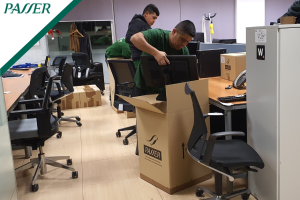Has the coronavirus made teleworking here to stay?
Telecommuting It's a word that, in recent years, has become a key player in the world of work. The situation caused by the coronavirus pandemic forced companies of all sizes to adapt their processes, protocols, and daily tasks to this remote work modality. In Spain, this change accelerated a trend that had already been developing in large corporations, but was still progressing slowly in SMEs.
Today, the question many are asking is whether everything will return to the way it was before or if remote work is here to stay. Although there is no definitive answer, data shows that before the pandemic, many companies had already partially adopted this approach, aware of the advantages it offers both to employees and to the organization itself.
If you're an owner, CEO, or director considering maintaining remote work, either fully or partially, in your company, we'll explain its main benefits.
Lower costs for the company
Teleworking significantly reduces operating costs. If part of the workforce works from home, offices can be smaller, which reduces rental or maintenance costs. This change also reduces costs for water, electricity, cleaning, and other services associated with the facilities.
Another advantage is the savings on travel and subsistence allowances, as employees don't need to commute to the workplace every day, which also has a positive impact on sustainability.
Reduction of absenteeism
One of the most obvious benefits of teleworking is the reduction in absenteeism. The flexible hours offered by this approach allow employees to better manage their workdays, facilitating a work-life balance.
Less stress from commuting, more time for family tasks, and greater autonomy in work organization translate into fewer unjustified absences and a better willingness to meet goals.
Organization by objectives and not by hours
Teleworking is driving a shift in how teams are managed. Instead of tracking the time an employee spends in the office, their performance is now being measured by objectives or projects.
This approach fosters individual responsibility, efficiency, and autonomy, better adapting to the current needs of businesses, where productivity and flexibility are key factors for competing in the market.
Attracting and retaining talent
Offering remote work expands the pool of available candidates, as it eliminates geographical limitations. A company that adopts this approach can hire people who live far from headquarters or even in other cities, provided they have the necessary skills for the position.
This not only increases the chances of finding specialized talent, but also improves employee retention, as many professionals greatly value the flexibility of working from home.
Increased productivity
It's proven that teleworking can increase productivity. By eliminating daily commutes, employees have more time to rest, focus on their personal lives, and work with greater concentration.
A less stressed employee with a better work-life balance tends to be more motivated, engaged, and committed to the company. This satisfaction is reflected in better performance and higher quality of work.
Teleworking as part of the future of work
Remote work isn't a one-size-fits-all solution for every company or every position. However, many organizations have discovered that it can be combined with in-person work through rotating schedules or by applying it only to certain profiles.
In fact, following the experience of the pandemic, many companies are expected to downsize their offices and adopt hybrid models to optimize costs and increase flexibility.
If your company is considering this change and needs to relocate your offices to a smaller, more efficient space, at Passer Moving we can help you with the move and offer solutions such as furniture storage to facilitate the process.
In conclusionTeleworking has ceased to be a marginal option and has become a strategic tool. Not only does it help companies reduce costs and improve their competitiveness, but it also offers employees greater well-being and flexibility. And although each company will have to adapt the model to its current situation, everything indicates that teleworking will be part of our daily work routines for a long time to come.








